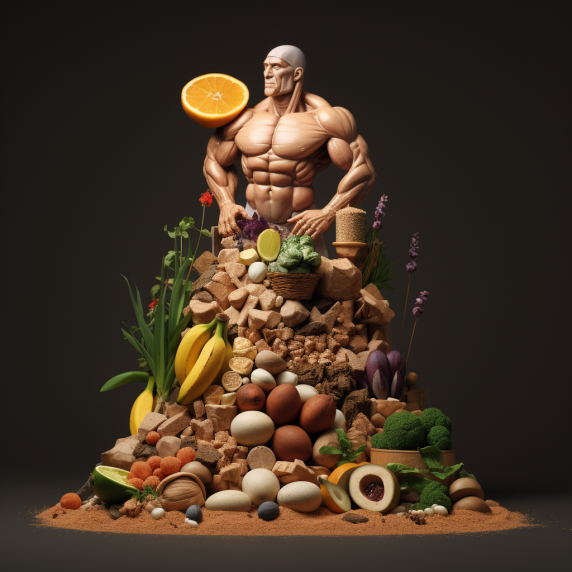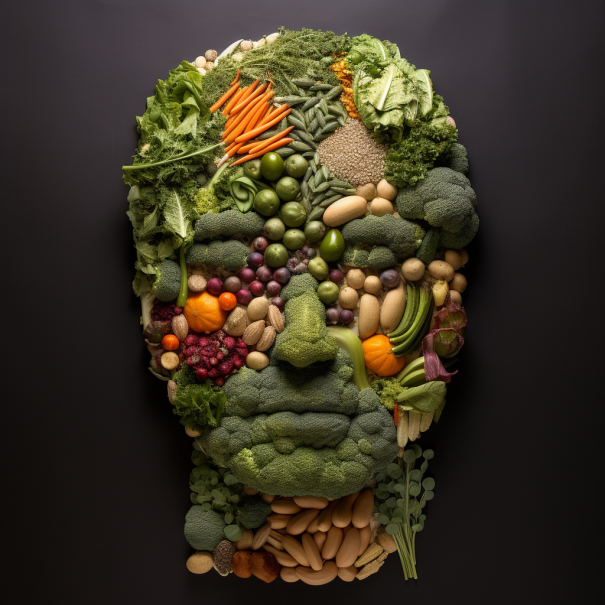Healthy Eating Habits: Encouraging children to develop positive attitudes towards plant-based eating and make healthy choices.
**Before making any dietary changes for a child, it is crucial to consult a pediatrician. Children’s nutritional needs vary significantly during their developmental years, and proper nutrition plays a critical role in their growth and well-being. Seeking professional guidance ensures that any adjustments to their diet are appropriate and meet their individual requirements.
Plant-based meats have gained significant popularity in recent years as more people embrace the benefits of a plant-based diet. These innovative products are designed to mimic the taste and texture of traditional meat while being entirely derived from plants. With the rising awareness of health and environmental benefits associated with plant-based diets, plant-based meats have become a staple for those seeking sustainable living.
When it comes to children’s nutrition, the importance of providing them with a well-balanced diet cannot be overstated. The early years of a child’s life are crucial for their growth and development, and the food they consume plays a vital role in shaping their overall health. Plant-based diets offer a promising solution for promoting the well-being of children while also addressing sustainability concerns.
In this article, we will explore the concept of plant-based meats and their growing popularity. We will also delve into the significance of children’s nutrition and how plant-based diets can contribute to their health and the sustainability of our planet.
Table 1: Different Plant-Based Diets
| Plant-Based Diet | Description |
|---|---|
| Flexitarian | A flexitarian diet is mostly plant-based, but occasionally includes small amounts of meat, fish, or poultry. It promotes a predominantly plant-based lifestyle with occasional flexibility for animal-based foods. |
| Pescatarian | A pescatarian diet is primarily plant-based but includes fish and seafood. It excludes meat and poultry but may include dairy products and eggs. |
| Vegetarian | A vegetarian diet excludes meat, fish, and poultry but may include dairy products and eggs. It focuses on plant-based foods like fruits, vegetables, legumes, nuts, and grains. |
| Whole Food Plant-Based (WFPB) | A whole food plant-based diet focuses on whole, unprocessed plant foods and avoids refined foods, oils, and added sugars. It promotes a high intake of fruits, vegetables, legumes, nuts, and whole grains. |
| Vegan | A vegan diet excludes all animal products, including meat, dairy, eggs, and even honey. It consists entirely of plant-based foods and may involve using plant-based alternatives for common animal-based products. |
| Raw Vegan | A raw vegan diet consists of uncooked and unprocessed plant-based foods, including fruits, vegetables, nuts, seeds, and sprouted grains. Cooking is avoided to preserve the natural nutrients in the food. |
Benefits of a Plant-Based Diet for Children
A plant-based diet offers numerous health benefits for children, making it an excellent choice for promoting their overall well-being. By adopting a plant-based diet, children can enjoy a reduced risk of obesity, heart disease, and certain types of cancers.
One of the key advantages of a plant-based diet is its ability to provide all the necessary nutrients for children’s growth and development. Contrary to common misconceptions, plant-based diets can offer ample protein, vitamins, minerals, and other essential nutrients that are vital for children’s optimal health.
Plant-based foods are typically lower in saturated fats and cholesterol, which are commonly found in animal-based products. This can help children maintain a healthy weight and reduce the risk of obesity, a growing concern in today’s society.
Furthermore, plant-based diets are rich in fiber, which aids in digestion and helps prevent constipation. The abundance of fruits, vegetables, whole grains, and legumes in a plant-based diet provides children with a wide range of vitamins, minerals, and antioxidants that support their immune system and overall health.
Table 2: Health Benefits of a Plant-Based Diet for Children
| Health Benefit | Description |
|---|---|
| Reduced Risk of Obesity | Plant-based diets are typically lower in calories and saturated fats, aiding weight management. Children on plant-based diets are less likely to be obese. |
| Heart Disease Prevention | Plant-based diets are associated with lower cholesterol levels, reducing the risk of heart disease in children. |
| Lower Risk of Certain Cancers | Plant-based diets rich in antioxidants and phytochemicals can reduce the risk of certain types of cancers like colorectal and breast cancer. |
| Adequate Nutrient Intake | Well-planned plant-based diets can provide all essential nutrients needed for children’s growth and development. |
| Digestive Health | The fiber content in plant-based foods supports healthy digestion and helps prevent constipation. |
| Immune System Support | Plant-based diets rich in vitamins and antioxidants strengthen the immune system, reducing the risk of infections. |
| Enhanced Bone Health | Calcium-rich plant-based foods like fortified plant milks and leafy greens contribute to healthy bone development. |
| Cognitive Benefits | Nutrients in plant-based foods, such as omega-3 fatty acids, support brain health and cognitive function. |
Studies have also shown that plant-based diets can help lower the risk of heart disease in children. By avoiding high levels of saturated fats and cholesterol found in animal products, children can maintain healthy cholesterol levels and reduce the risk of developing cardiovascular issues later in life.
Additionally, plant-based diets have been associated with a reduced risk of certain types of cancers, such as colorectal and breast cancer. The high intake of fruits and vegetables, which are rich in antioxidants and phytochemicals, can help protect children against the development of cancer cells.
Overall, a plant-based diet offers a wide range of health benefits for children, including reduced risk of obesity, heart disease, and certain cancers. By providing all the necessary nutrients for growth and development, plant-based diets can support children’s overall health and well-being.
Raising Vegan Children: Key Considerations
When it comes to raising vegan children, there are common concerns that parents may have regarding meeting their nutritional needs and ensuring balanced meals. However, with proper planning and knowledge, it is entirely possible to introduce and maintain a plant-based diet for your children.
Meeting Nutritional Needs
One of the main concerns parents have is whether a plant-based diet can provide all the necessary nutrients for their children’s growth and development. Rest assured, a well-planned vegan diet can meet all their nutritional needs.
It’s important to focus on a variety of plant-based foods to ensure an adequate intake of essential nutrients. Include a wide range of fruits, vegetables, whole grains, legumes, nuts, and seeds in your child’s diet. These foods provide essential vitamins, minerals, fiber, and antioxidants.
Ensuring Balanced Meals
Creating balanced meals for vegan children involves incorporating a variety of food groups to ensure they receive all the necessary nutrients. Here are some tips to help you achieve this:
- Include a good source of protein in each meal, such as tofu, tempeh, lentils, chickpeas, or quinoa.
- Incorporate iron-rich foods like leafy greens, fortified cereals, and beans to support healthy blood production.
- Ensure an adequate intake of calcium by including plant-based sources such as fortified plant milks, tofu, and leafy greens.
- Don’t forget about vitamin B12, which is essential for proper nerve function. Consider fortified foods or a B12 supplement for your child.
- Offer a variety of colorful fruits and vegetables to provide a wide range of vitamins and minerals.
- Include healthy fats from sources like avocados, nuts, and seeds to support brain development.
Introducing and Maintaining a Plant-Based Diet
When introducing a plant-based diet to your children, it’s important to approach it with positivity and openness. Here are some tips to help you navigate this transition:
- Start by gradually incorporating more plant-based meals into your child’s diet. This allows them to adjust to new flavors and textures.
- Involve your child in meal planning and preparation. Let them choose fruits, vegetables, or plant-based proteins they would like to try.
- Make food fun and visually appealing. Create colorful and creative meals that will capture your child’s interest.
- Be a positive role model by embracing a plant-based diet yourself. Children are more likely to adopt healthy habits when they see their parents practicing them.
- Educate your child about the benefits of a plant-based diet, such as promoting their health and protecting the environment.
- Seek support from online communities or local vegan groups. Connecting with other parents who are raising vegan children can provide valuable advice and encouragement.
Remember, every child is different, and it may take time for them to fully embrace a plant-based diet. Be patient, understanding, and supportive throughout the process. With proper planning and guidance, you can raise healthy and thriving vegan children.
Essential Nutrients for Vegan Kids
When following a plant-based diet, it’s important to pay special attention to certain nutrients to ensure that children receive all the necessary building blocks for their growth and development. Here are some key nutrients to focus on:
Protein
Protein is essential for children’s growth and muscle development. While animal products are commonly associated with protein, there are plenty of plant-based sources that can meet children’s protein needs. These include:
- Legumes such as lentils, chickpeas, and black beans
- Tofu and tempeh
- Quinoa and amaranth
- Nuts and seeds, including almond butter and chia seeds
Iron
Iron is important for children’s cognitive development and overall energy levels. Plant-based sources of iron include:
- Dark leafy greens like spinach and kale
- Beans and lentils
- Fortified cereals and breads
- Tofu and tempeh
Pairing iron-rich foods with vitamin C-rich foods, such as citrus fruits or bell peppers, can enhance iron absorption.
Calcium
Calcium is crucial for children’s bone health. While dairy products are a common source of calcium, there are several plant-based alternatives available:
- Fortified plant-based milks like soy, almond, or oat milk
- Tofu made with calcium sulfate
- Leafy greens such as broccoli, kale, and bok choy
- Calcium-fortified orange juice
Vitamin B12
Vitamin B12 is primarily found in animal products, so it’s important for vegan children to obtain it through fortified foods or supplements. Some plant-based sources of vitamin B12 include:
- Fortified plant-based milks and cereals
- Nutritional yeast
- Vegan meat alternatives fortified with vitamin B12
It’s advisable to consult with a healthcare professional or registered dietitian to ensure that your child’s nutrient needs are being met through a plant-based diet. They can provide personalized guidance and recommend appropriate supplements if necessary.
When incorporating these nutrients into child-friendly meals, get creative! For example, you can make protein-packed lentil burgers, calcium-rich smoothies with fortified plant-based milk, or iron-rich spinach and tofu stir-fry. By using a variety of plant-based ingredients, you can ensure that your child receives a well-rounded and nutritious diet.
Child-Friendly Vegan Recipes
Introducing children to a plant-based diet can be an exciting culinary adventure. By offering delicious and nutritious recipes, you can ensure that your child enjoys a balanced and varied diet. Here are some child-friendly vegan recipes that are sure to please even the pickiest eaters:
Breakfast
Blueberry Banana Pancakes
- Blueberry Banana Pancakes Ingredients:
- 1 cup whole wheat flour
- 1 tablespoon baking powder
- 1 ripe banana, mashed
- 1 cup almond milk
- 1/2 cup blueberries
- In a mixing bowl, combine the flour and baking powder.
- Add the mashed banana and almond milk, and mix until well combined.
- Gently fold in the blueberries.
- Heat a non-stick pan over medium heat and pour 1/4 cup of batter for each pancake.
- Cook until bubbles form on the surface, then flip and cook for another minute or until golden brown.
- Serve with maple syrup or fresh fruit.

Chia Pudding Parfait
- Chia Pudding Parfait Ingredients:
- 2 tablespoons chia seeds
- 1 cup almond milk
- 1 tablespoon maple syrup
- 1/2 cup mixed berries
- 1/4 cup granola
- In a jar or bowl, mix the chia seeds, almond milk, and maple syrup. Stir well and let it sit for at least 30 minutes or overnight in the refrigerator.
- Layer the chia pudding with mixed berries and granola in a glass or jar.
- Repeat the layers until all the ingredients are used.
- Top with additional berries and granola.
- Enjoy as a nutritious and filling breakfast.
Lunch
Veggie Wrap
- Veggie Wrap Ingredients:
- Whole wheat tortilla
- 1/4 cup hummus
- Assorted vegetables (e.g., sliced cucumber, shredded carrots, baby spinach)
- 1/4 cup cooked quinoa
- 1 tablespoon tahini sauce
- Spread hummus evenly on the tortilla.
- Layer the vegetables and cooked quinoa on top of the hummus.
- Drizzle with tahini sauce.
- Roll the tortilla tightly and cut into bite-sized pieces.
- Secure with toothpicks if needed.
- Enjoy as a nutritious and portable lunch option.
Tomato Basil Soup with Grilled Cheese
- Tomato Basil Soup with Grilled Cheese Ingredients:
- 2 cups diced tomatoes
- 1/2 cup vegetable broth
- 1/4 cup chopped fresh basil
- 1/4 teaspoon garlic powder
- Salt and pepper to taste
- 4 slices whole wheat bread
- 1/2 cup vegan cheese
- 1 tablespoon vegan butter
- In a blender, combine the diced tomatoes, vegetable broth, basil, garlic powder, salt, and pepper. Blend until smooth.
- Pour the mixture into a saucepan and heat over medium heat until warmed through.
- Meanwhile, assemble the grilled cheese sandwiches by placing vegan cheese between two slices of bread.
- Spread vegan butter on the outside of each sandwich.
- Heat a non-stick pan over medium heat and cook the sandwiches until golden brown on both sides and the cheese is melted.
- Serve the tomato basil soup with the grilled cheese sandwiches for a comforting and satisfying lunch.

Dinner
Sweet Potato and Black Bean Enchiladas
- Sweet Potato and Black Bean Enchiladas Ingredients:
- 4 large sweet potatoes, peeled and cubed
- 1 can black beans, rinsed and drained
- 1/2 cup diced red onion
- 1/2 cup diced bell peppers
- 1 teaspoon cumin
- 1 teaspoon chili powder
- 8 whole wheat tortillas
- 1 cup enchilada sauce
- 1/4 cup chopped fresh cilantro
- Preheat the oven to 375°F (190°C).
- In a large bowl, combine the sweet potatoes, black beans, red onion, bell peppers, cumin, and chili powder.
- Place a spoonful of the mixture onto each tortilla and roll it up tightly.
- Arrange the enchiladas in a baking dish and pour the enchilada sauce over them.
- Bake for 20-25 minutes or until the tortillas are golden and the filling is heated through.
- Garnish with fresh cilantro before serving.
- Enjoy these flavorful enchiladas as a satisfying dinner option.
Mushroom and Spinach Pasta
- Mushroom and Spinach Pasta Ingredients:
- 8 ounces whole wheat pasta
- 2 tablespoons olive oil
- 8 ounces mushrooms, sliced
- 2 cloves garlic, minced
- 4 cups fresh spinach
- 1/4 cup nutritional yeast
- Salt and pepper to taste
- Cook the pasta according to the package instructions. Drain and set aside.
- In a large skillet, heat the olive oil over medium heat.
- Add the mushrooms and garlic, and sauté until the mushrooms are tender.
- Add the spinach and cook until wilted.
- Stir in the cooked pasta and nutritional yeast. Season with salt and pepper.
- Cook for an additional 2-3 minutes, stirring occasionally.
- Serve the mushroom and spinach pasta as a delicious and satisfying dinner.
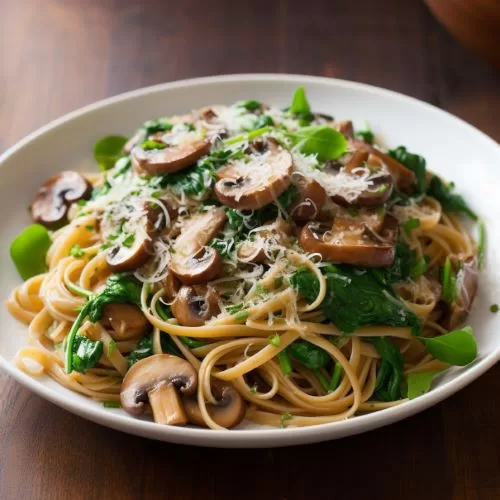
Snacks
Apple Nachos
- Apple Nachos Ingredients:
- 1 apple, thinly sliced
- 2 tablespoons almond butter
- 2 tablespoons granola
- 2 tablespoons shredded coconut
- 1 tablespoon mini vegan chocolate chips
- Instructions:
- Arrange the apple slices on a plate.
- Drizzle almond butter over the apple slices.
- Sprinkle granola, shredded coconut, and mini vegan chocolate chips on top.
- Enjoy these apple nachos as a healthy and satisfying snack.
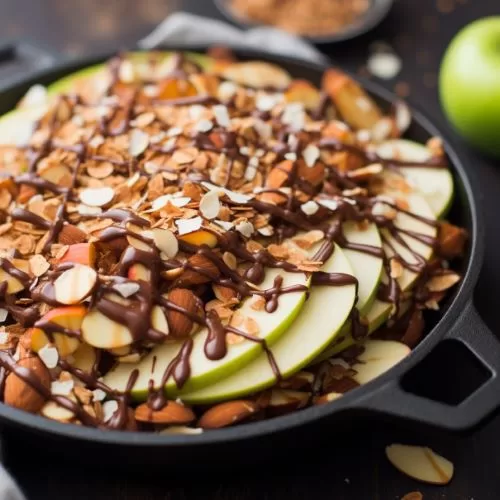
Energy Balls
- Energy Balls Ingredients:1 cup dates, pitted
- 1/2 cup rolled oats
- 1/4 cup almond butter
- 2 tablespoons chia seeds
- 2 tablespoons maple syrup
- 1/4 cup shredded coconut (optional)
- Instructions:
- In a food processor, blend the dates, rolled oats, almond butter, chia seeds, and maple syrup until well combined.
- Roll the mixture into small balls using your hands.
- If desired, roll the energy balls in shredded coconut for an extra touch.
- Refrigerate for at least 30 minutes before serving.
- Enjoy these energy balls as a nutritious and energizing snack.
Desserts
Chocolate Avocado Pudding
- Chocolate Avocado Pudding Ingredients:
- 2 ripe avocados
- 1/4 cup cocoa powder
- 1/4 cup maple syrup
- 1/4 cup almond milk
- 1 teaspoon vanilla extract
- Pinch of salt
- In a blender or food processor, combine the avocados, cocoa powder, maple syrup, almond milk, vanilla extract, and salt.
- Blend until smooth and creamy.
- Transfer the pudding to serving bowls or glasses.
- Refrigerate for at least 1 hour before serving.
- Indulge in this rich and decadent chocolate avocado pudding.
Strawberry Banana Nice Cream
- Strawberry Banana Nice Cream Ingredients:
- 2 ripe bananas, sliced and frozen1 cup frozen strawberries1/2 cup almond milk1 tablespoon maple syrup
- In a blender or food processor, combine the frozen bananas, frozen strawberries, almond milk, and maple syrup.
- Blend until smooth and creamy (add additional almond milk 1/4 at a time as needed)
- Serve immediately as a refreshing and guilt-free dessert.
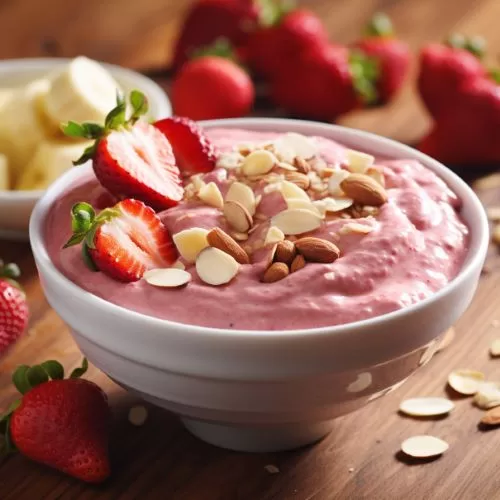
Tips for Encouraging Healthy Eating Habits
When it comes to encouraging children to embrace a plant-based diet and develop healthy eating habits, there are several practical strategies that can make the process easier and more enjoyable for everyone involved.
Involving Children in Meal Planning and Preparation
One effective way to get children excited about plant-based meals is by involving them in the meal planning and preparation process. Allow them to choose fruits, vegetables, and plant-based proteins they want to try, and let them help with tasks like washing produce, stirring ingredients, or assembling meals. This not only gives them a sense of ownership over their food choices but also helps them develop important life skills.
Making Food Fun and Visually Appealing
Children are more likely to eat and enjoy their meals when they are visually appealing and fun. Get creative with food presentation by using colorful fruits and vegetables, arranging them in interesting shapes, or creating themed meals. For example, you can make a rainbow salad with a variety of colorful veggies or create animal-shaped sandwiches using cookie cutters. By making plant-based meals visually appealing, you can capture your child’s attention and make healthy eating more exciting.
Being a Positive Role Model
Children often look up to their parents and caregivers as role models. By consistently demonstrating a positive attitude towards plant-based eating and making healthy choices yourself, you can inspire your child to do the same. Show enthusiasm for trying new plant-based foods, share your own positive experiences, and openly discuss the benefits of a plant-based diet. When children see their role models enjoying and valuing plant-based meals, they are more likely to develop a similar mindset.
Remember, developing healthy eating habits takes time and patience. Be supportive and understanding throughout the process, and celebrate small victories along the way. By implementing these strategies, you can help your child embrace a plant-based diet and lay the foundation for a lifetime of healthy eating habits.
Conclusion
In conclusion, plant-based meats and a plant-based diet offer numerous benefits for children’s nutrition. By incorporating these foods into their diet, parents can promote their children’s health and well-being while also contributing to a more sustainable future.
One of the key advantages of plant-based meats is that they are typically lower in saturated fat and cholesterol compared to traditional meat products. This can help reduce the risk of obesity, heart disease, and certain types of cancer in children. Additionally, plant-based diets are rich in fiber, vitamins, and minerals, which are essential for growth and development.
It is important to note that a balanced nutrition is crucial when raising vegan children. Parents should ensure that their children are getting all the necessary nutrients, including protein, iron, calcium, and vitamin B12. Fortunately, there are plenty of plant-based sources for these nutrients, such as legumes, whole grains, leafy greens, and fortified foods.
Encouraging healthy eating habits in children is also essential. Parents can involve their children in meal planning and preparation, making food fun and visually appealing, and being positive role models by following a plant-based diet themselves. By creating a positive and supportive environment, parents can help their children embrace a plant-based lifestyle and develop lifelong healthy eating habits.
In conclusion, plant-based meats and a plant-based diet provide a sustainable and nutritious option for children’s nutrition. By choosing plant-based alternatives and incorporating a variety of plant-based foods into their children’s meals, parents can ensure their children’s health and well-being while also making a positive impact on the environment.
Related FAQ
Does plant-based diet mean vegan or vegetarian?
A plant-based diet does not necessarily mean vegan or vegetarian. There are various approaches to a plant-based dietary pattern as shown in Table 1. The main idea is to focus on consuming natural and nutrient-rich foods while reducing the intake of highly refined and processed foods and sugars. Plant-based diets can encompass a range of eating habits, from including some animal products (like in a flexitarian, vegetarian or pescatarian diet) to being entirely free of animal products (vegan diet). The common thread is the emphasis on plant-derived foods as the primary source of nutrition.
What are the health benefits of a plant-based diet for children?
A plant-based diet can reduce the risk of obesity, heart disease, and certain types of cancers in children. It provides all the necessary nutrients for growth and development.
Can a plant-based diet meet all the nutritional needs of children?
Yes, a well-planned plant-based diet can provide all the essential nutrients for children’s growth and development. Including a variety of plant-based foods ensures an adequate intake of protein, vitamins, minerals, and antioxidants.
How can parents ensure balanced meals for vegan children?
Parents can include a good source of protein in each meal, incorporate iron-rich foods, ensure an adequate intake of calcium, provide vitamin B12 through fortified foods or supplements, and offer a variety of colorful fruits and vegetables.
How can parents introduce and maintain a plant-based diet for their children?
Parents can gradually incorporate more plant-based meals, involve children in meal planning and preparation, make food fun and visually appealing, be positive role models, educate children about the benefits of a plant-based diet, and seek support from online communities or local vegan groups.
What are some essential nutrients to focus on for vegan kids?
Protein, iron, calcium, and vitamin B12 are key nutrients to focus on for vegan kids. Plant-based sources such as legumes, leafy greens, fortified foods, and supplements can help meet their nutritional needs.
Key Take Away
- Plant-based diets offer health benefits for children, including reduced risk of obesity, heart disease, and certain cancers.
- A well-planned plant-based diet can provide all the necessary nutrients for children’s growth and development.
- Balanced meals for vegan children should include protein, iron, calcium, and vitamin B12 from plant-based sources.
- Introducing and maintaining a plant-based diet requires gradual transition, involvement of children, and positive role modeling.
- Creative and delicious child-friendly vegan recipes can make the plant-based diet enjoyable for children.
Glossary
- Plant-Based Meats: Innovative products derived from plants that mimic the taste and texture of traditional meat, providing a sustainable alternative.
- Balanced Meals: Meals that include a variety of food groups to ensure the intake of essential nutrients for optimal health.
- Nutrient-Rich Foods: Foods that are high in essential vitamins, minerals, fiber, and antioxidants, supporting children’s growth and development.
- Vegan: Referring to a person who follows a plant-based diet and avoids all animal products.
- Sustainability: The practice of living in a way that meets present needs without compromising the ability of future generations to meet their own needs.
Additional Resources
Books
- The Vegan Family: Raising Healthy, Happy Kids on a Plant-Based Diet by Nava Atlas (2010)
- The Kids’ Plant-Powered Cookbook: 100+ Healthy, Delicious, and Easy Recipes for Kids of All Ages by Bryant Terry (2016)
- Vegan for Kids: Raising Healthy, Happy, and Inspired Children on a Plant-Based Diet by Terry Hope Romero (2016)
- Raising Vegan Children: The Complete Guide to Giving Your Child a Healthy, Happy, and Compassionate Start by Vesanto Melina and Brenda Davis (2013)
- The Plant-Powered Family: Healthy, Happy, and Sustainable Meals for Kids of All Ages by Robin Robertson (2019)
Studies
- The effects of plant-based diets on the body and the brain: a systematic review (2019)
- Plant-Based Diets for Healthy Aging (2021)
- Sustainable Diets, Food, and Nutrition: Proceedings of a Workshop. (2019)
- Nutrient status and growth in vegan children (2021)
- The influence of parental encouragement and caring about healthy eating on children’s diet quality and body weights(2016)
